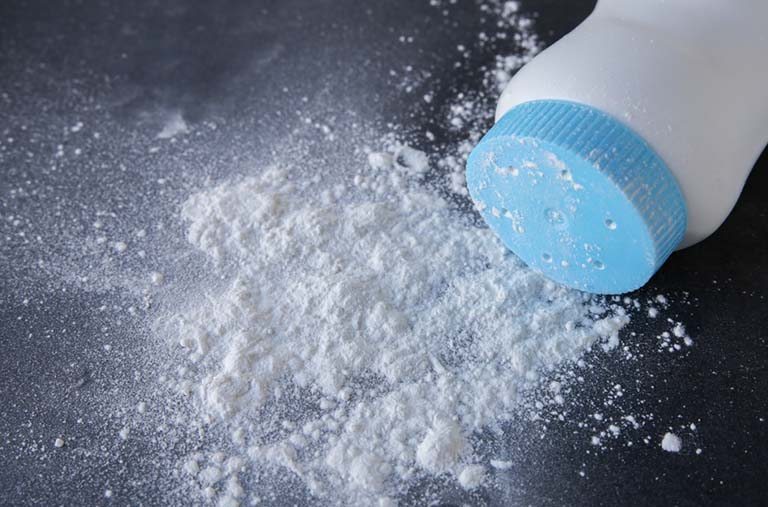Talcum Powder Lawsuit
Talcum powder is used in many cosmetic products today but women are 33 percent more likely to develop ovarian cancer because of it.
Contact our Mass Tort and Class Action attorneys today.

Contact our Mass Tort and Class Action attorneys today.

Talcum Powder, or Talc, is a mineral comprised mainly of magnesium, silicon, and oxygen. It is widely used in many cosmetic products and powders to prevent wetness, chaffing and rashes. Johnson & Johnson (J&J) has used talcum powder in their Baby Powder and Shower to Shower products for many generations, developing a large and loyal customer-base throughout the years.
Since 1971, more than 20 studies have linked talc powder to ovarian cancer, and, in 2003, an analysis of 16 of these studies found that women using talcum powder were 33 percent more likely to develop ovarian cancer. It has been alleged that Johnson & Johnson, the maker of popular talc-based powders, including Baby Powder and Shower-to-Shower, knew about the ovarian cancer risk since at least 1982, but failed to warn women using these products.
Call a Talcum Powder – Ovarian Cancer Lawyer Who Will Fight For Your Rights
For decades, researchers have been studying the potential link between ovarian cancer and talcum powder. It is believed that talc powder, when used near the genitals, can travel to the ovaries and become embedded in the ovarian tissue. While talc is a natural mineral, it is very difficult for the body to remove the particles and, as a result, inflammation may occur and cancerous tumors may form. The first publication to suggest that talc may cause ovarian cancer was published in 1971 in the medical journal The Lancet. In the study, researchers discovered that a majority of ovarian tumors had talc particles “deeply embedded” in them. Then, in 1982, researchers found that women using talcum powder during ovulation were at a 92 percent increased risk of developing ovarian cancer. During the next three decades, an additional 21 studies were performed on talc powder, and almost all of these studies found that women using these products near their genitals were at an increased risk for developing ovarian cancer.
To date, both the National Cancer Institute and the American Cancer Society consider talc use near the genitals as a “risk factor” for ovarian cancer. Despite this possible link, Johnson & Johnson and other talc powder manufacturers have not placed warnings about this risk on their products.
There are a wide range of over the counter products containing talcum powder, and some of the more common products are the following:
If you have used any of these products, cease using them immediately. If you took these products and received an ovarian cancer diagnosis, contact a Chhabra Gibbs & Herrington PLLC Attorney immediately.
On Oct. 18, 2019, Johnson & Johnson issued a voluntary recall for one lot of Johnson’s Baby Powder after a U.S. Food and Drug Administration test found trace levels of chrysotile asbestos contamination.
Companies named in lawsuits include Johnson & Johnson, Vanderbilt Minerals, Colgate-Palmolive and Imerys Talc America. Johnson & Johnson faces the largest number of talc cancer claims.
Although the defendants have won a few cases, juries have returned billions of dollars in verdicts for plaintiffs, and lawsuits continue to pour in. Most settlements so far have been with individual plaintiffs for undisclosed amounts.
As of Oct. 15, 2019, Johnson & Johnson faces 13,730 cases consolidated in the U.S. District Court for the District of New Jersey. Hundreds more are pending in state courts.
Talcum powder continues to be a controversial product that poses a safety risk for women. If you or a loved one received a cancer diagnosis from your ovarian cancer doctor after using talcum powder, contact us today.
Contact us today if you have been harmed by talcum powder. You may qualify for compensation.
Contacting the firm is free. We understand that the disputes facing you and your family can seem daunting.


